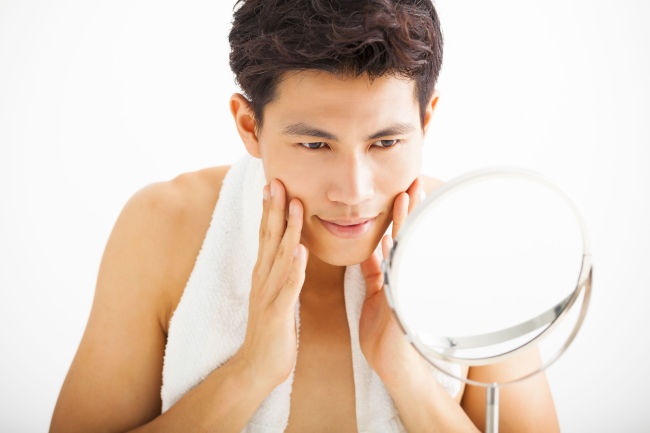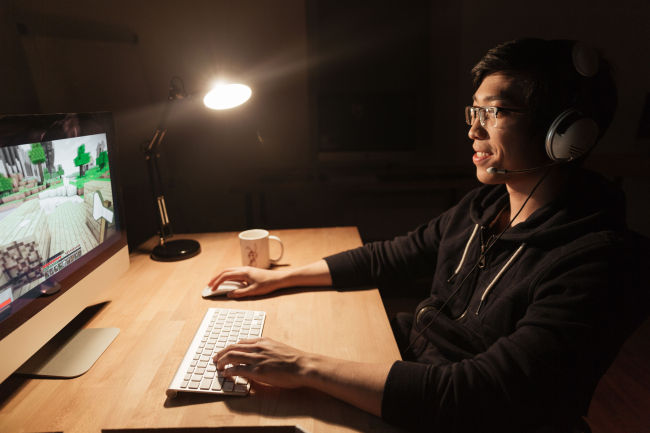Gone are the days of men waiting in the resting area while their wife or girlfriend shops for them.
South Korea’s middle-aged men are redefining their culture from the outdated and unattractive image embedded in the term “ajeossi,” to a younger and less formidable “ajae.”
The new trend is also filtering into industries that were once considered sanctuaries for women, such as fashion, cosmetics and even plastic surgery.
 |
(123rf) |
Industries that traditionally focus on the younger generation, such as gaming, are also tailoring their marketing strategies to middle-aged men.
One of Korea’s biggest shopping venues Hyundai Department Store saw the portion of male shoppers rise to 32.6 percent in the first half of this year from 27.8 percent in 2013.
“Brands in the contemporary casual clothing category, made to target men in their 20s, are becoming popular with middle-aged men,” according to Choi Hyun-jin, spokesperson of Korea’s leading fashion group LF.
According to Choi, the trend can also be attributed to the change in Korea’s work environment. Korea’s largest conglomerates, such as Samsung, LG and SK, have a no-tie business casual dress code, which gives middle-aged men a wider variety of clothes to try out.
Another characteristic of ajaes is that they aren’t embarrassed to openly engage in activities that are usually reserved for kids, such as gaming.
Game makers credit them for the success of mobile simulation role playing games that are made based on the games that they when they were in their teens and 20s.
 |
(123rf) |
Master of Eternity by Korean game maker Nexon, for example, ranked No. 9 by sales on Google Play 10 days after its release.
“Men who are classified as ajaes grew up playing online games during their teen years. Since they are now working adults, they have more money and leisure time to spend on games. Nexon has been around for 22 years, so it can be said that ajaes have aged with the game industry,” said a spokesman of Nexon.
He added, game brands are putting advertisements on platforms with high exposure to middle-aged men, such as sports channels.
Games made to target the older age group also hold promotions giving out red ginseng extracts, which is popular ajaes.
“The baby boomer generation grew up in an environment where they rarely had the opportunity to take an in-depth look into what they enjoy and prefer,” said Park Sung-hee, a senior researcher at the Korea Trend Research Institute.
“Men, in particular, were taught to focus on their role as breadwinners for their families. Now that they have settled down with a stable family and job, a growing number of them are trying to figure out what they like.” he added.
Skincare clinics and plastic surgery centers were once thought of as women-only zones, but such notion is changing.
“The biggest change in the beauty industry in recent years is an increase in the number of male patients. Among patients who visit Wells dermatology and medical SPA, the ratio of male in their 40s or older has significantly surged,” doctor Choi Won-woo, a chief director of Wells dermatology and medical SPA.
Popular treatments among the men are Botox injections, laser treatments for skin rejuvenation, and fillers for a high-bridged nose.
According to big data by BC Card, money spent in skin and beauty categories by those in their 40s and 50s rose by 35.3 percent and 41.7 percent, respectively, between 2012 and 2015.
Although men in their 20s and 30s make up the majority of male patients, ajaes have the financial ability to receive more expensive treatments, doctor Choi added.
Researcher Park agreed. “These days many view attractive looks as a strength in a competitive society. Money spent on grooming can be thought of as an investment, just as people spend money learning a language. With longer life expectancy we have to work longer, which is another reason why more ajaes are spending money on looks.”
By Kim Bo-gyung (
lisakim425@heraldcorp.com)









![[Today’s K-pop] Blackpink’s Jennie, Lisa invited to Coachella as solo acts](http://res.heraldm.com/phpwas/restmb_idxmake.php?idx=644&simg=/content/image/2024/11/21/20241121050099_0.jpg)